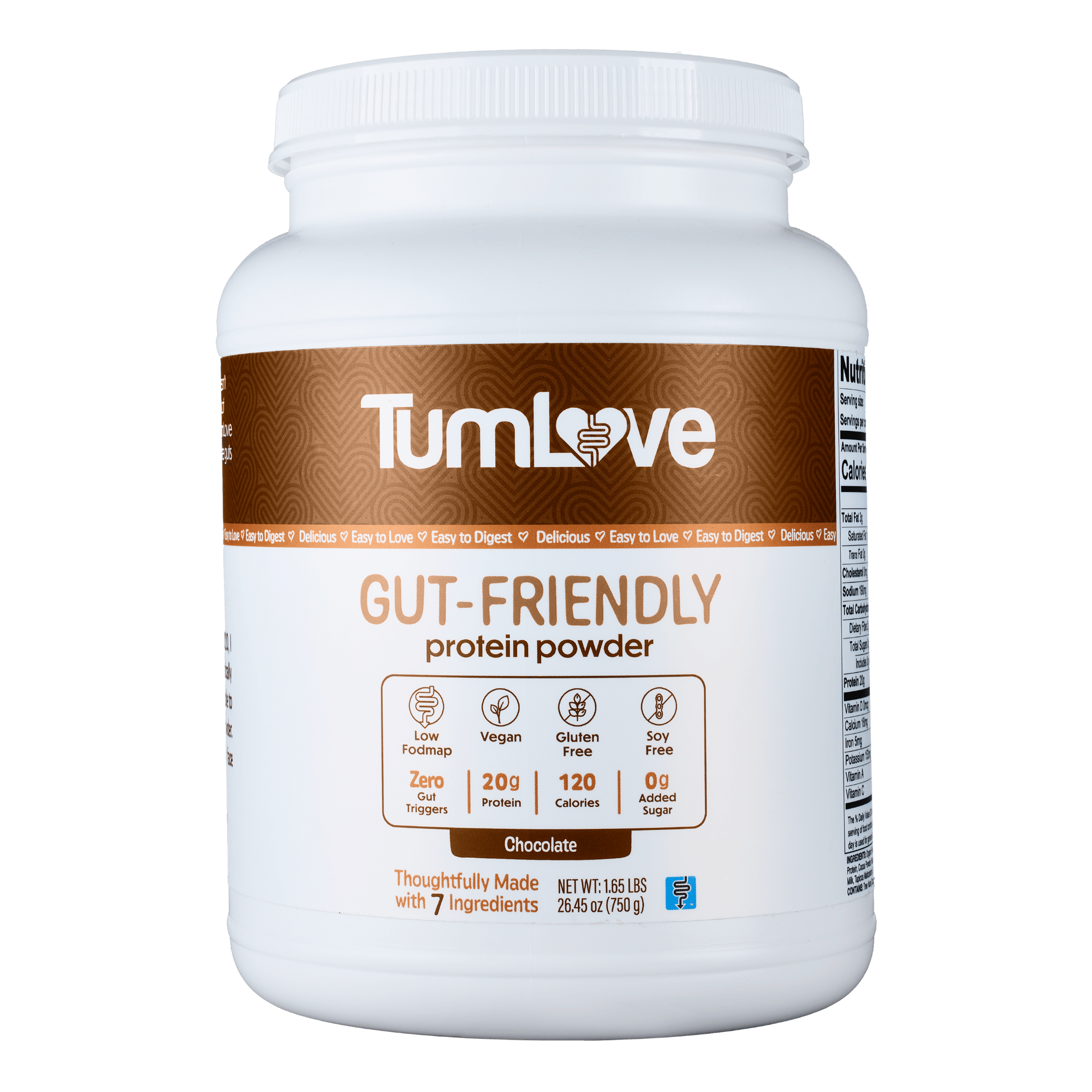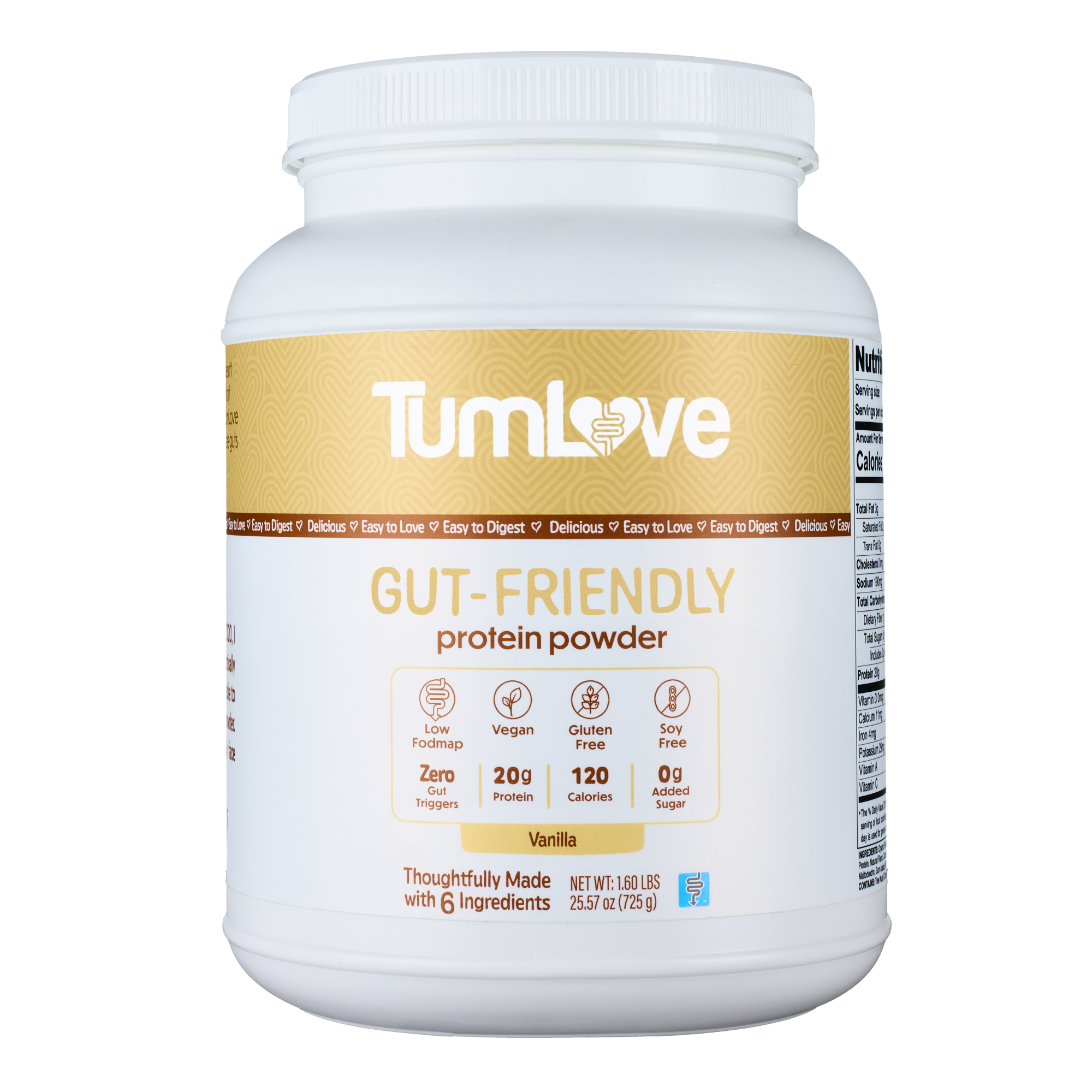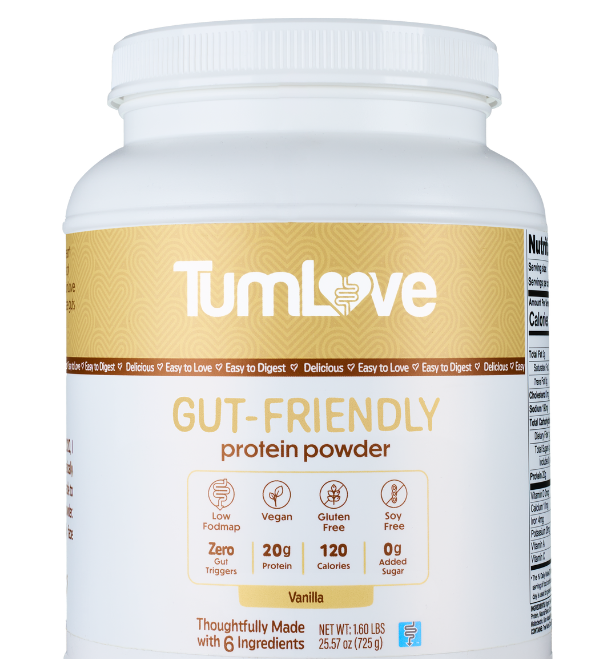TumLove stands as the premier choice for those on a quest for ultimate digestive health and holistic wellness. This innovative offering taps into the potency of meticulously chosen, top-tier components to offer a multi-faceted strategy for dealing with diverse digestive concerns. TumLove's aim is to target the underlying triggers of digestive unease, facilitating individuals to feel their optimum, and enabling them to embrace life unshackled by the restrictions of digestive predicaments.
★★★★★
"Now I can do what I love while feeling great!"
- Lileia S.
Have you ever felt discomfort after your protein shake? That's protein bloating. Here at Tumlove, we believe anyone can beat the bloat, so let's dive into understanding this condition better. In this article, we'll explore what protein bloating is, what causes it, and how you can treat it effectively.
Identifying Protein Bloat
Protein bloating, or 'protein bloat', refers to a condition where consumption of protein supplements leads to a feeling of fullness, discomfort, and in some cases, visible distension of the stomach. This is more common than you might think and affects many individuals striving to maintain a high-protein diet. But why does this happen?
What Causes Protein Bloating?
Protein bloating can occur due to a variety of factors. One common cause is an excessive intake of protein in a single serving, leading to difficulty in digestion. Consuming protein shakes on an empty stomach or dehydration can also trigger this uncomfortable condition.
Treatment Strategies for Protein Bloating
The good news is protein bloating can be managed effectively with the right strategies. Let's uncover some of the best ways to handle this condition.
1. Moderation is Key
One of the best ways to prevent protein bloating is by consuming protein in moderation. Overloading on protein in a single meal can overwhelm your digestive system, leading to bloating. Try to distribute your protein intake evenly throughout the day for better digestion.
2. Hydrate, Hydrate, Hydrate
Hydration is essential when consuming a high-protein diet. Water plays a critical role in digestion, helping to break down food and absorb nutrients. So, make sure you're drinking ample water throughout the day, particularly when consuming protein supplements.
3. Choose Your Protein Wisely
Not all protein powders are created equal. Some may contain ingredients that could exacerbate bloating, like lactose or high-FODMAP sweeteners. This is where our Tumlove low FODMAP gut-friendly protein powder shines. It's vegan, delicious, and designed to be easy on your gut, making it a perfect choice for those prone to protein bloating.
Lifestyle Adjustments for Managing Protein Bloat
In addition to the above strategies, some lifestyle adjustments can further help manage protein bloating.
1. Regular Physical Activity
Regular exercise can enhance digestion and alleviate bloating symptoms. Incorporating physical activity into your routine encourages movement in the gastrointestinal tract, promoting better digestion and alleviating discomfort associated with bloating.
2. Mindful Eating
Paying attention to what and how you eat can significantly impact your digestion. Try to eat slowly, chewing thoroughly to ease digestion and absorption of protein.
3. Regular Health Check-ups
If you're experiencing protein bloating frequently, it might be wise to check with a healthcare professional. It could be a sign of an underlying digestive condition that needs addressing.
Knowing Your Body's Protein Requirements
Every body is unique, and so are its protein needs. Understanding your personal protein requirements can help you better manage protein bloating. Your protein intake should align with your activity level, age, and overall health goals. If you're unsure of how much protein you need, consider using our protein calculator. It takes into consideration factors such as your age, gender, weight, and gut issues to estimate your ideal protein intake.
1. Listen to Your Body
Your body often signals when it's getting too much or too little of something. Paying attention to these signs can help you adjust your protein intake accordingly and potentially reduce bloating.
2. Customizing Your Protein Intake
There is no one-size-fits-all when it comes to protein intake. Depending on your lifestyle, you may need to tweak your protein consumption. For instance, if you lead an active lifestyle, your protein needs might be higher than someone who is less active.
3. Consult a Professional
If you're unsure about your protein needs or if you're experiencing regular bloating despite adjustments, consider consulting a dietitian or a healthcare professional. They can provide personalized advice based on your health status and lifestyle.
Busting Protein Bloating Myths
When it comes to protein bloating, there are a few common myths that can cloud our understanding. Let's clear up some misconceptions.
1. More Protein, Better Health
While protein is essential for our bodies, consuming more than required can lead to issues like protein bloating. It's crucial to balance protein intake with other nutrients for optimal health.
2. All Protein Powders Cause Bloating
Not all protein powders are the same. Some are formulated with gut-friendly ingredients like our Tumlove protein powder, designed to be gentle on your stomach. Choosing the right protein supplement can make a world of difference to your bloating symptoms.
Final Thoughts
Protein bloating can be an uncomfortable side effect of a high-protein diet or protein supplement intake. However, with a careful approach to your protein consumption, appropriate hydration, and lifestyle adjustments, you can manage and even prevent protein bloating. Don't forget that your protein powder choice matters too. Our Tumlove low FODMAP gut-friendly protein powder is formulated to be easy on your stomach, providing you with the necessary protein boost without the discomfort of bloating. Remember, health is a journey, not a destination. Listen to your body, adjust as needed, and keep striving for a wealthier, healthier you. After all, health is the real wealth we all aspire to have.
Shop Now




